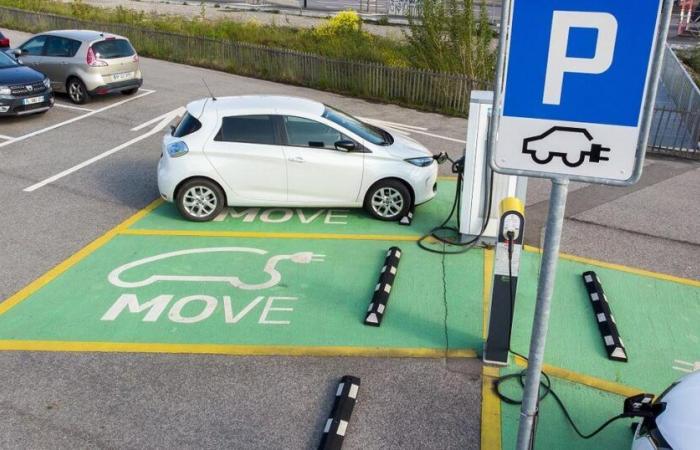The year 2025 should be the year of falling prices for electric vehicles. The crazy surge in their prices could well be a thing of the past, according to experts, thanks to cheaper batteries and overproduction. But the profitability of manufacturers and infrastructure remain major challenges.
After Covid-19, the shortage of components and the positioning of brands at the high end of the range have driven up the price of electric vehicles. Buyers did not follow, which led to a drop in demand. Registrations of new electric cars fell last year, by 10% in Switzerland, just as in the European Union.
There is a drop in prices linked to LFP batteries, slightly less efficient batteries, but above all less expensive, which allows costs to be reduced. In addition, significant overcapacity, particularly in China, is forcing stocks to be sold off.
An electric car costs on average 7,000 to 8,000 francs more than a thermal model. To boost sales, manufacturers are therefore offering significant reductions.
Laurent Petizon, head of the automotive sector at AlixPartners, explains Wednesday in La Matinale: “There is a drop in prices linked to LFP batteries, batteries that are a little less efficient, but above all less expensive, which allows costs to be reduced. Furthermore, significant overcapacity, particularly in China, is forcing stocks to be sold. There is therefore a change in the balance between supply and demand. At the end of Covid, supply was much lower than demand. Today, it’s the opposite.”
Comply with new environmental standards
To regain sales volumes, manufacturers must therefore adapt to consumers’ budgets by lowering prices. And this, while having to respect new environmental standards. By the end of the year, they must reduce their average CO2 emissions by 15%, or face severe fines.
In essence, the more electric cars they sell, the less they are penalized. By lowering their prices, manufacturers hope to achieve their climate objectives, but not necessarily their financial objectives. According to Laurent Petizon, “it is feasible, but the drop in component prices is not fast enough. Currently, selling electric vehicles at the price displayed in dealerships does not seem to be a source of profit for many manufacturers.”
Margins in the automotive industry are usually between 4% and 8%. They had climbed to almost 10% in a large part of the world industry
European manufacturers also face Chinese competition. Some, like Volkswagen, have launched restructuring plans, but lowering prices is a challenge. Bernard Jullien, economist at the University of Bordeaux, notes: “Since the Covid crisis, manufacturers’ margins have increased significantly. They will probably have to give them up, at least partially, to meet emissions reduction obligations and regain lost volumes. Prices have exploded, partly due to this frantic quest for margin. It is paradoxical to speak of a crisis while manufacturers’ profits remain high.
A return to normal could take place this year, as Bernard Jullien explains: “Margins in the automobile industry are usually between 4% and 8%. They had climbed to almost 10% in a large part of the global industry It will probably be necessary for financial circles, manufacturers and their leaders to accept this return to normal. This seemed difficult in 2024, but seems more likely in 2025. Today, demand is pushing towards more commercial policies. offensives: erosion of margins and lower prices Even the automobile trade has an interest in finding customers, even if it means that prices and margins fall.
Price drop of 10 to 15% expected in Switzerland
This trend could benefit Switzerland, where Nicolas Leuba, vice-president of the Swiss Automobile Professional Union, forecasts a drop in prices of 10 to 15% compared to last year. “This is good news, because it will make it possible to sell new electric cars to customers who were hesitant because of the high prices.”
For hybrids, there is no problem, but for all-electric vehicles, we do not yet have a sufficient level of infrastructure
However, he emphasizes that the development of charging infrastructure remains crucial to support this transition, especially for 100% electric vehicles. “For hybrids, there is no problem, but for all-electric vehicles, we do not yet have a sufficient level of infrastructure.”
Indeed, despite lower maintenance and wear costs, the lack of infrastructure and a purchasing cost which remains consistently higher hinder buyers from switching to all-electric.
Radio subject: Virginie Langerock
Text for the web: Fabien Grenon






